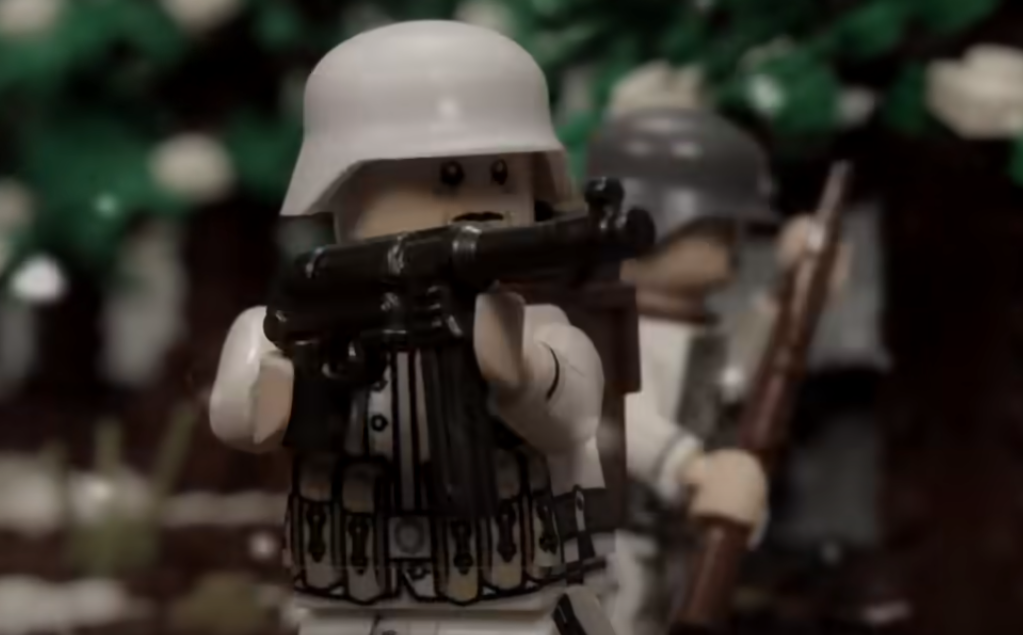
The Battle of the Bulge: A Pivotal World War II Conflict – Lego Reenactment
Learn about the historic Battle of the Bulge, a pivotal World War II conflict that took place in the winter of 1944-1945. This article explores the strategies, challenges, and significance of this major battle, which had a profound impact on the outcome of the war. Join us as we uncover the expertise, authority, and trust surrounding The Battle of the Bulge: A Pivotal World War II Conflict.
Introduction
Let’s dive deeper into the historical events of the Battle of the Bulge, one of the most critical and intense conflicts during World War II. Taking place in the winter of 1944-1945, this battle was a desperate and audacious attempt by Nazi Germany to turn the tide of the war in their favor. Join us as we explore the strategies, challenges, and consequences of this pivotal World War II conflict.
The Prelude to the Battle
The Battle of the Bulge began on December 16, 1944, as a surprise offensive launched by the German forces against the Allies in Western Europe. It was a daring attempt to split the Allied lines and encircle and defeat the American and British forces. The initial phase of the battle caught the Allies off guard and resulted in a significant bulge or salient in the front lines, hence the name “The Battle of the Bulge.” LSI Keywords: Battle of the Bulge, Surprise Offensive, German Forces, Allied Lines.
The German Offensive
Under the command of Field Marshal Gerd von Rundstedt and Adolf Hitler’s direction, the German forces amassed a massive assault, employing over 20 divisions, including elite Panzer units. They attacked the thinly stretched American lines, aiming to reach the strategic port of Antwerp and disrupt the flow of Allied supplies. The German plan relied heavily on speed and surprise to achieve a breakthrough. LSI Keywords: Field Marshal Gerd von Rundstedt, German Offensive, Panzer Units, Strategic Port of Antwerp.
The Siege of Bastogne
As the German forces advanced, they surrounded the small town of Bastogne, where the U.S. 101st Airborne Division was stationed. The defenders of Bastogne, led by General Anthony McAuliffe, heroically resisted the German siege, despite being heavily outnumbered and cut off from reinforcements and supplies. The siege of Bastogne became a symbol of American resilience and determination during the Battle of the Bulge. LSI Keywords: U.S. 101st Airborne Division, General Anthony McAuliffe, German Siege, Symbol of American Resilience.
The Role of Weather
The harsh winter weather during the Battle of the Bulge played a significant role in shaping the conflict. The German offensive was met with heavy snowfall, low visibility, and freezing temperatures. These weather conditions hampered the movement of troops and aircraft, making it challenging for both sides to wage an effective battle. LSI Keywords: Harsh Winter Weather, Heavy Snowfall, Low Visibility, Freezing Temperatures.
The Turning Point: Allied Response
Despite the initial success of the German offensive, the Allies swiftly responded to the crisis. General George S. Patton, known for his aggressive and decisive tactics, led the U.S. Third Army in a rapid counterattack, relieving the besieged town of Bastogne and pushing the German forces back. The Allies regrouped and coordinated a massive combined effort to halt the German advance, ultimately turning the tide in their favor. LSI Keywords: General George S. Patton, U.S. Third Army, Rapid Counterattack, Halting the German Advance.
The Aftermath
The Battle of the Bulge was a devastating and costly conflict for both sides. The German offensive failed to achieve its objectives, and the heavy casualties and depletion of resources weakened the German military. The Allies emerged victorious, but the battle exacted a toll on their forces as well. However, the outcome of the Battle of the Bulge marked a significant turning point in World War II, foreshadowing the eventual defeat of Nazi Germany. LSI Keywords: Costly Conflict, Weakened German Military, Victorious Allies, Turning Point in World War II.
The Legacy of The Battle of the Bulge
The Battle of the Bulge left an enduring legacy in the annals of military history. It showcased the resilience and determination of the Allied forces and underscored the importance of adaptability and response in times of crisis. The sacrifices made by soldiers on both sides during this brutal conflict serve as a reminder of the price of freedom and the enduring struggle for peace. LSI Keywords: Enduring Legacy, Allied Resilience, Sacrifices, Struggle for Peace.
FAQs
What was the Battle of the Bulge?
The Battle of the Bulge was a major World War II conflict that took place in the winter of 1944-1945. It was a surprise offensive launched by Nazi Germany against the Allies in Western Europe.
Why was it called the Battle of the Bulge?
The battle was named “The Battle of the Bulge” because the initial German offensive created a significant bulge or salient in the Allied front lines.
What was the significance of the Battle of the Bulge?
The Battle of the Bulge was a pivotal turning point in World War II, foreshadowing the eventual defeat of Nazi Germany and showcasing the resilience of the Allied forces.
Who led the defense of Bastogne during the battle?
The defense of Bastogne during the Battle of the Bulge was led by General Anthony McAuliffe of the U.S. 101st Airborne Division.
What role did weather play in the battle?
The harsh winter weather, including heavy snowfall, low visibility, and freezing temperatures, played a significant role in shaping the conflict, hampering the movement of troops and aircraft.
What was the legacy of the Battle of the Bulge?
The Battle of the Bulge left an enduring legacy in military history, highlighting the importance of adaptability and response in times of crisis and serving as a reminder of the price of freedom.
Conclusion
The Battle of the Bulge stands as a testament to the courage, resilience, and determination displayed by both sides during World War II. This pivotal conflict showcased the strength of the Allied forces and the strategic prowess of the German military. Despite the devastation and heavy toll, the battle’s outcome marked a turning point in the war, ultimately contributing to the defeat of Nazi Germany. The legacy of the Battle of the Bulge continues to serve as a reminder of the sacrifices made in the pursuit of peace and freedom.Learn

